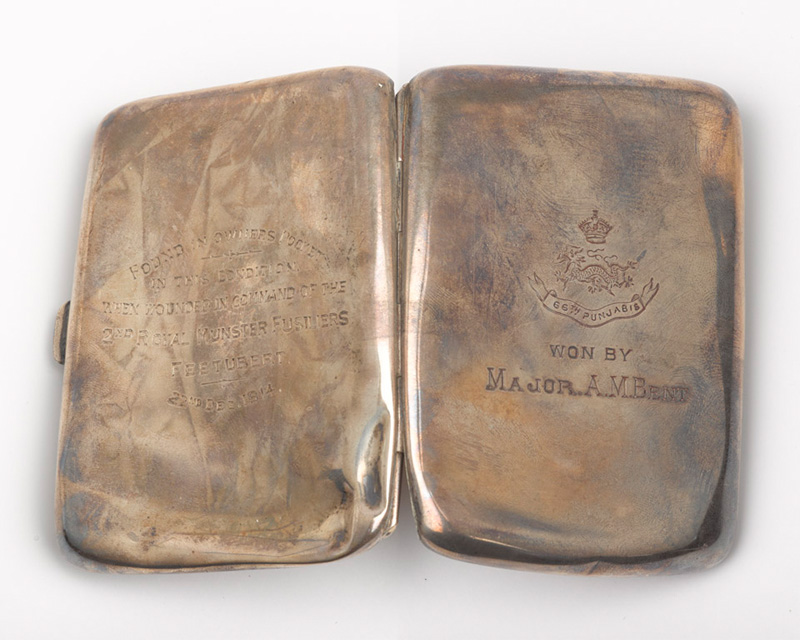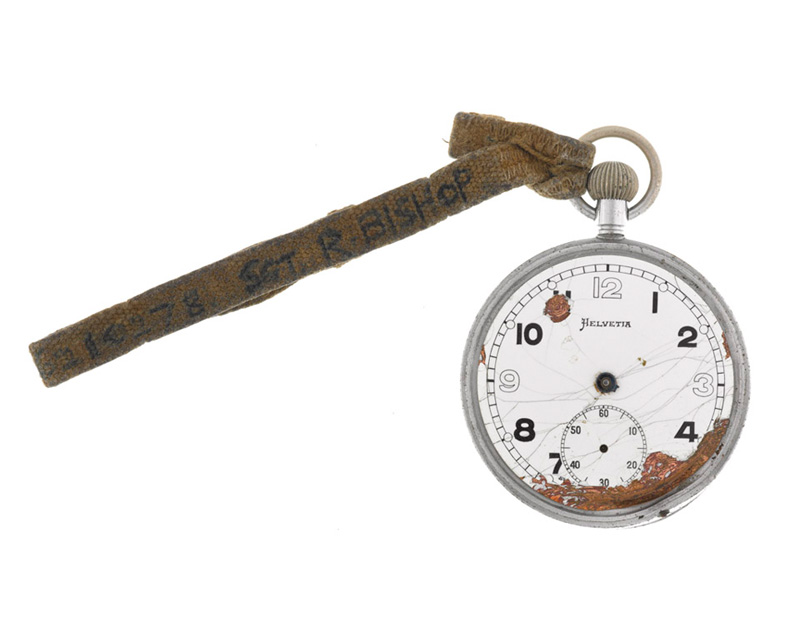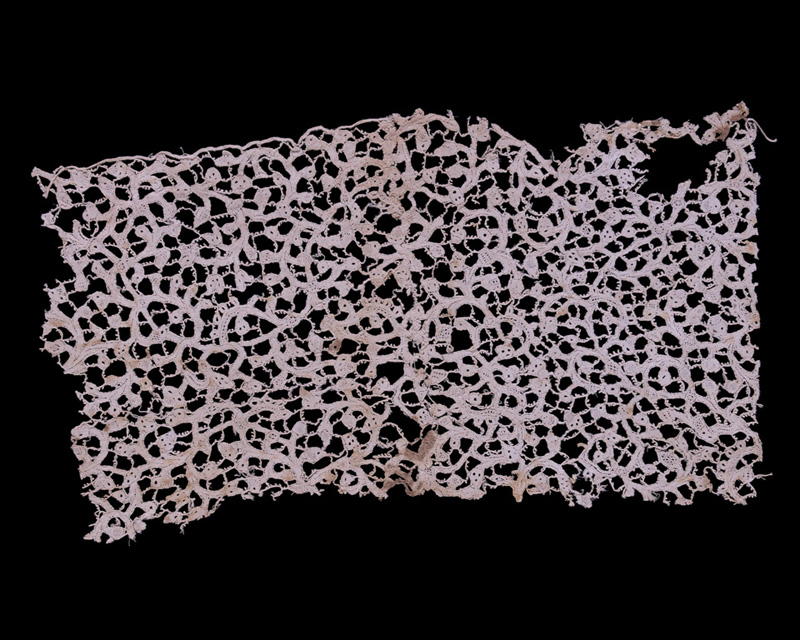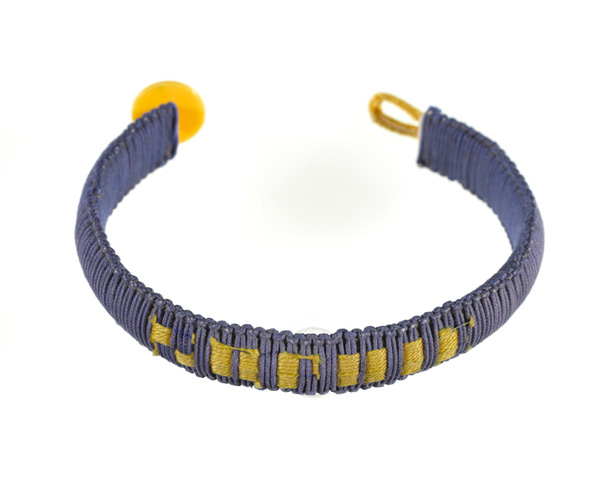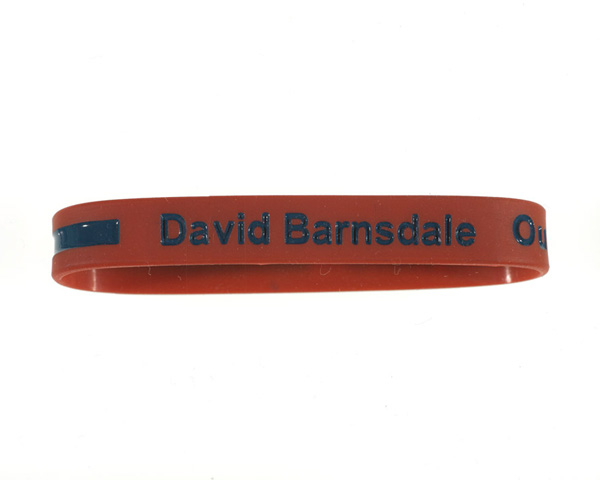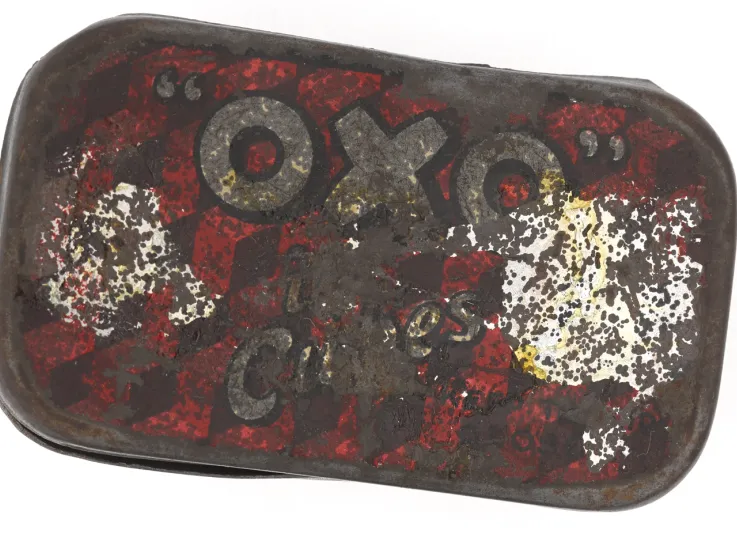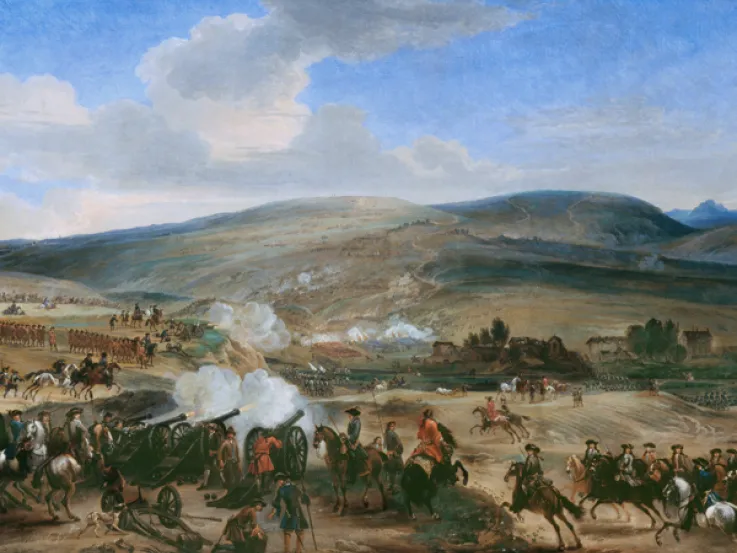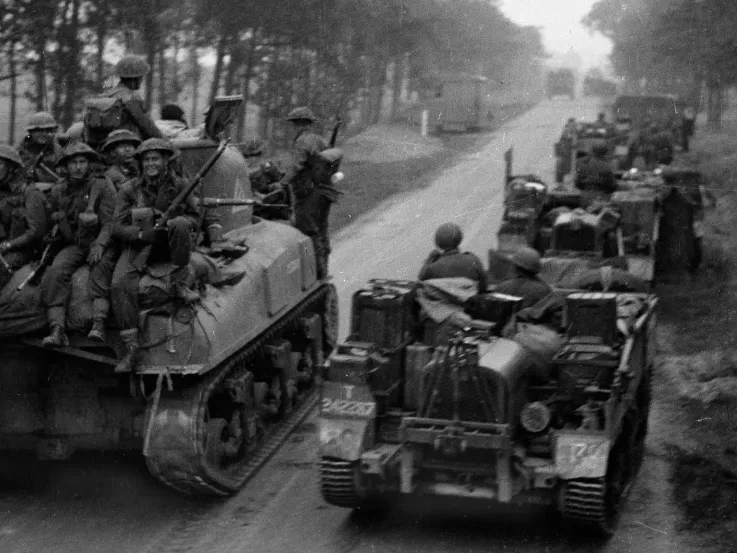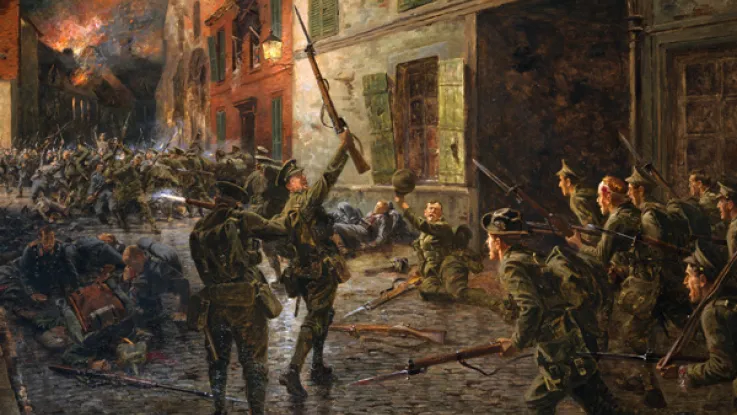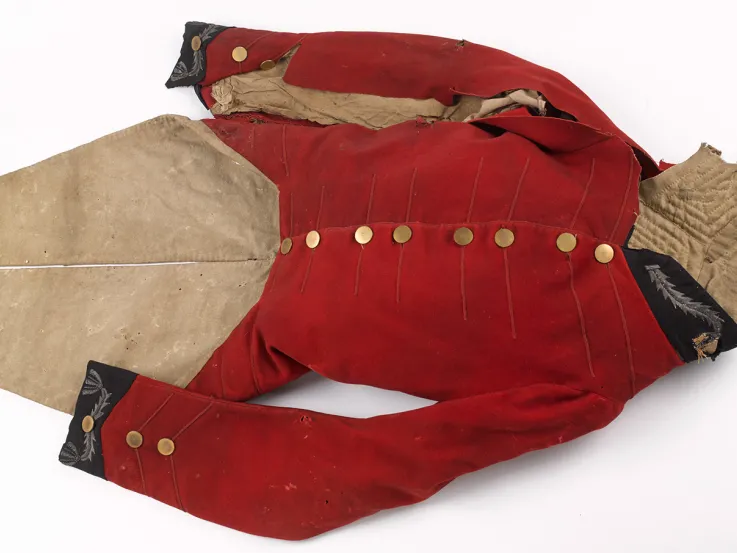Escape from no-man’s land
On 22 December 1914, in the early stages of the First World War, Lieutenant-Colonel Arthur Bent was seriously wounded by a shell while commanding 2nd Battalion, The Royal Munster Fusiliers, at Festubert on the Western Front. The regimental historian, Captain McCance, recorded the event:
‘Colonel Bent had a miraculous escape. The whole of his side was laid open... his intestines being completely exposed to the air. But for the fact that he fell on a dead German, he would undoubtedly have been drowned.'
Despite the severity of his wound, and 18 hours' exposure to the damp and freezing conditions of no-man's land, Bent lived to tell the tale.

Sergeant Roy Bishop with his wife, Gwyn, shortly after their marriage, 1945
Saved in the nick of time
During the Second World War, Sergeant Roy Bishop of the Middlesex Regiment landed in Normandy with his mortar platoon in June 1944. He served right through to the final defeat of Nazi Germany, seeing a good deal of action and experiencing many close calls.
On 8 August 1944, during intense fighting for the French village of Montchamp, he was struck by shrapnel. But his life was saved by the contents of his breast pocket.
‘One could see shrapnel creeping up the field towards us. I was just a bit too late in getting down to earth and I was hit at the level of my battle blouse breast pocket, which fortunately was loaded with my platoon book, a register of bombs fired, my wallet, and at the back of these was my Army Service watch attached to a lanyard. The force of the shrapnel pushed me down but I soon got up as the three pieces of shrapnel penetrated and smashed all the above items and had then fallen into the waist fold of the battle dress blouse, which had large burn holes. I let out a terrific yell and undid it immediately and then the hot shrapnel fell on to the ground.’Sergeant Roy Bishop, 1st Battalion, The Middlesex Regiment
History hanging by a thread
In 1690, King William III was involved in two separate close shaves at the Battle of the Boyne, a key event in the struggle for control of the British Isles.
On the eve of the battle, he suffered a cannonball wound to the shoulder while surveying the route his troops would take. The following day, towards the end of the battle, a smaller cannonball fired by the retreating enemy struck his boot.
The ball grazed his leg, staining the lace ruffle that lined the top of the boot with his blood. While the wound was less serious than that sustained the day before, the force in the shot was sufficient to slice through the leg of a nearby horse.
William gave the lace ruffle to one of his officers, Claudius Beaty, as reward for his assistance. It serves as evidence of the role luck can play in shaping the course of history.
Warding off danger
Soldiers adopt a variety of coping strategies to deal with mental stress arising from the apparent randomness of death and injury in battle. Some turn to religion, while others resort to black humour or drift into fatalism, an attitude best reflected in the idea that for every soldier there is 'a bullet with your name on it'.
However, a superstitious belief in the power of objects to ward off danger has been prevalent through the ages. Items such as bibles, rosaries and crucifixes, as well as non-religious charms including rabbits' feet, four-leaf clovers and horseshoes, have been invested with special protective power by their owners.
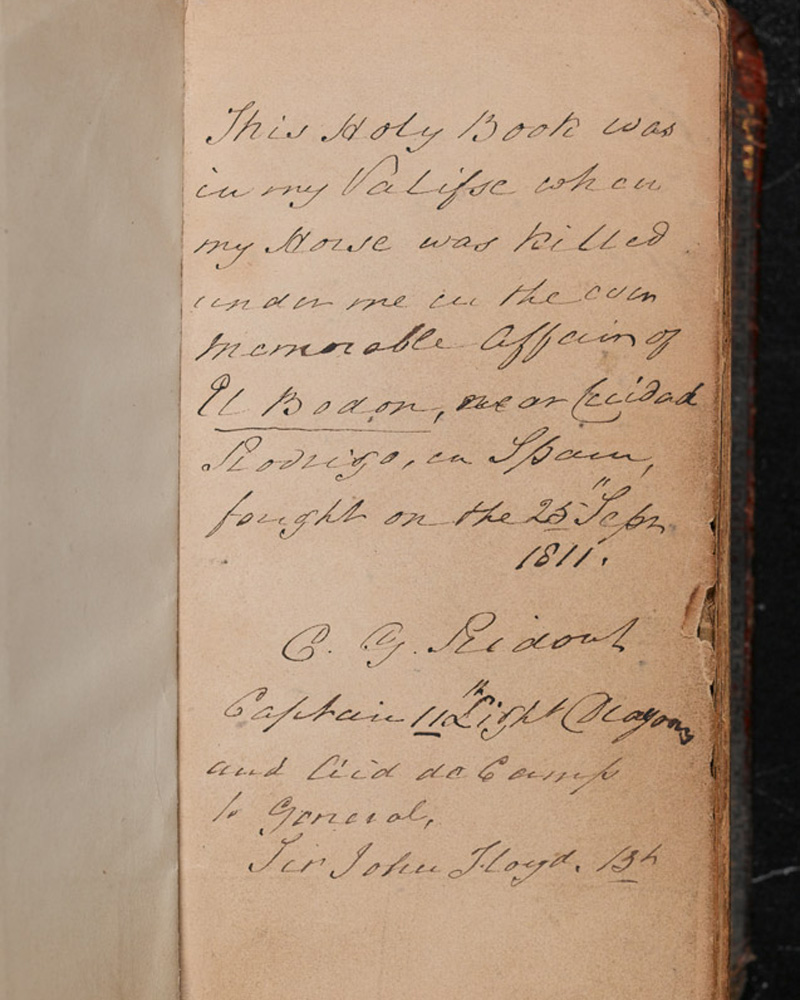
The inscription in this bible demonstrates the protective power its owner, Captain CG Ridout of the 11th Light Dragoons, believed it held. It reads: 'This Holy Book was in my valise when my horse was killed under me at the now memorable affair of El Bodon near Cuidad Rodrigo, in Spain, fought on 25 Sep 1811.'
Fortune and loss
Lance Corporal Jose Carvalho De Matos served as an improvised explosive device (IED) searcher with 33 Engineer Regiment (Explosive Ordnance Disposal) during the War in Afghanistan. While on tour in 2010-11, he wore a wristband bearing the name of his girlfriend, Sophie, as a lucky charm.
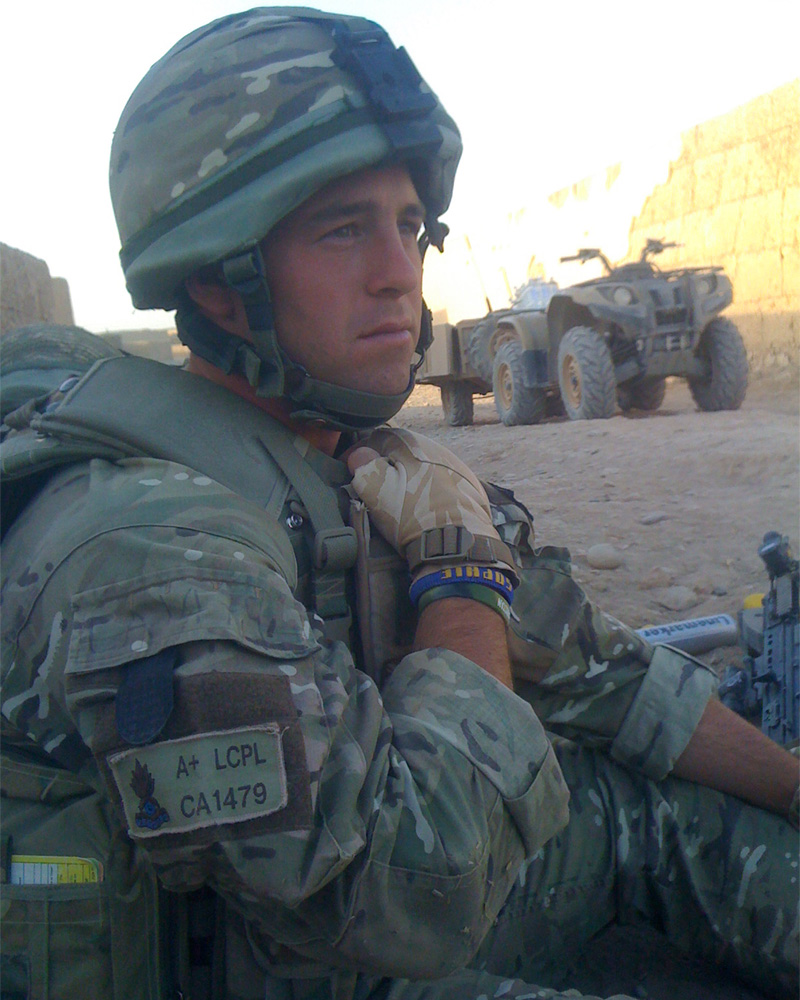
Lance Corporal De Matos on tour in Afghanistan wearing his lucky wristband, c2010
One day, De Matos had a narrow escape when he walked over two IEDs, both of which failed to detonate. Later, he described his feelings: ‘I was pretty lucky. I walked over two in a day and they didn’t go... I was counting my lucky stars then. I had someone on my shoulder.'
But the IEDs did eventually go off. One damaged a vehicle and the other killed Corporal David Barnsdale, a friend of De Matos.
Barnsdale's parents produced a commemorative wristband, which was worn by members of his unit. It is a sobering reminder that for every story of good fortune, there are many more of tragedy and loss.
‘Everybody has personal items – everybody. And it becomes ridiculous. I had my lucky strop, which was essentially a foot-long piece of rope that I used to pull bombs out of the ground with… In hindsight it's absolutely ridiculous. In no way am I superstitious in any other way: no horoscopes, no touching wood or anything like that. But your dependency on your lucky strop is ridiculous.’Warrant Officer Karl Ley, 11 Explosive Ordnance Disposal Regiment


